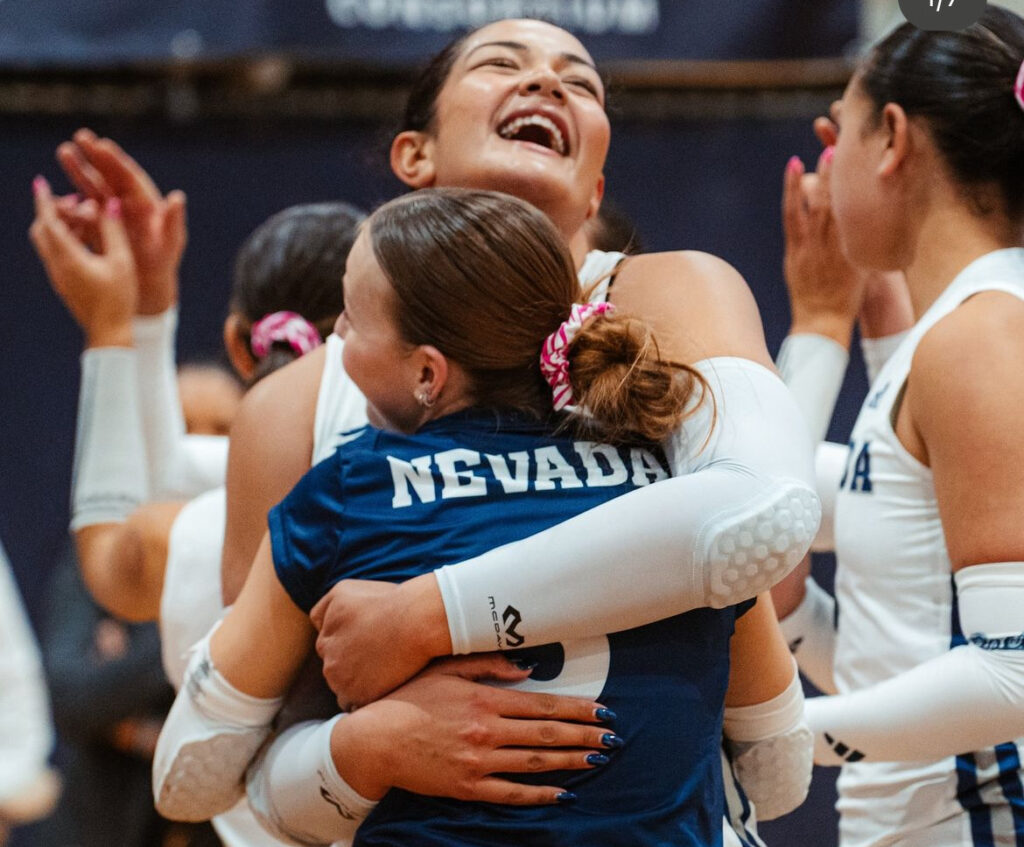Kinsley Singleton is among the youngest players on the University of Nevada, Reno volleyball team, but is one of their loudest voices when it comes to defending female sports.
During the fall of 2024 – her first semester in college – Singleton’s team was forced to make a difficult choice after discovering that one of the teams on their schedule, San Jose State University (SJSU), had a transgender-identifying male in its starting lineup.
“I never thought that this would happen to me,” Singleton told IW Features. “It was astonishing to be in that situation, to be scrolling on TikTok and see the drama with my team coming up.”
Singleton’s experience playing co-ed beach volleyball set off alarm bells about the potential risks of engaging with a male player.
“[Male players] are just stronger and faster – it’s crazy how high they can jump,” she explained. “Concussions would be the least that could happen.”
According to Singleton, some of the women on her team were from California and had faced this issue before. United in their concerns, the teammates began meeting frequently to discuss their options, she said.
“We had meetings with the athletic director, we had meetings with our coaches, and we even met up at an apartment to get away from all the noise just to talk as a team,” she said. “The school was involved, but at the end of the day, it was our decision.”
Back in 2022, the state of Nevada opted to adopt the Equal Rights Amendment, which lists “gender identity” as a legally protected class. Therefore, Singleton’s team faced heavy pressure from their university’s administration to play SJSU in order to avoid accusations of discrimination. Singleton said that while she felt the administration did listen to her teammates’ concerns, they were bound by rules and regulations to insist that the team move forward with the match.
“I thought this was a common sense issue – that there was no way anyone could think this was okay,” Singleton said. “I’ve never experienced anything like this before, but I was very strong in what I believe and I’m proud of myself for that.”
Despite the university’s insistence that the match take place, so many of Singleton’s teammates refused to play that they ended up forfeiting the match to SJSU – following in the footsteps of other female collegiate volleyball teams, including Boise State University, who also chose to forfeit matches rather than play against the biological male.
The decision wasn’t easy, Singleton said, and did require sacrifice on the part of her teammates.
“Luckily we were only set to play SJSU once, but for those seniors who missed out on two games this season, and for the Boise State seniors who missed out on a chance to win [the Mountain West Volleyball Championship tournament], my heart goes out to them,” Singleton said.
With three more years of competition ahead of her, Singleton is aware that this situation could arise again — especially if the NCAA does not change its participation policies, which currently allow trans-identified males to compete in women’s sporting events.
However, despite the difficulties that her team faced this season, she said she would make the same choice again.
“I think it’s just going to be a fight that young girls playing volleyball are going to have to take on,” she said. “That sucks for this generation, but it has to be done for the future. Volleyball is our whole world, and you should be able to stand up for what you believe in.”











